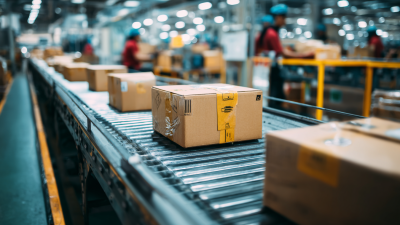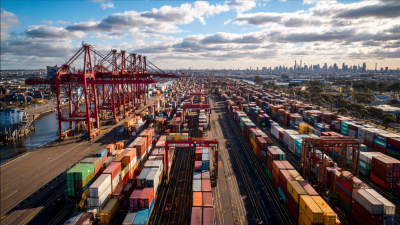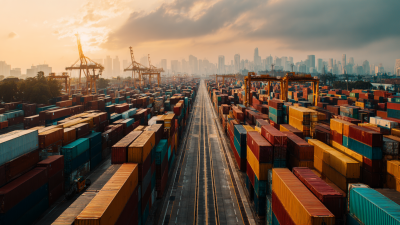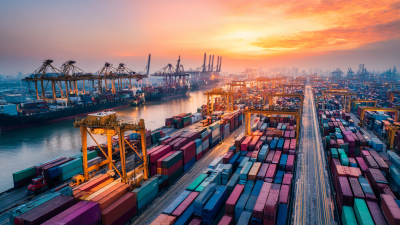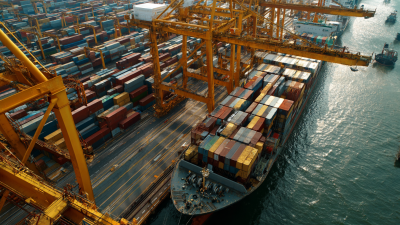In an era where sustainability has become a critical concern for industries globally, innovative logistics solutions are emerging as pivotal components in addressing environmental challenges. According to a report by the World Economic Forum, logistics accounts for approximately 11% of global carbon emissions, highlighting the urgent need for a shift towards more sustainable practices. As the demand for efficient and eco-friendly supply chains escalates, companies are increasingly investing in advanced logistics solutions that leverage technologies such as automation, artificial intelligence, and real-time data analytics. These innovations not only enhance operational efficiency but also significantly reduce environmental footprints. The Global Logistics Report further emphasizes that businesses adopting sustainable logistics strategies can achieve a competitive edge while contributing to a greener planet. This introduction will explore various innovative logistics solutions that are shaping a sustainable future, focusing on their impact and potential for the industry.
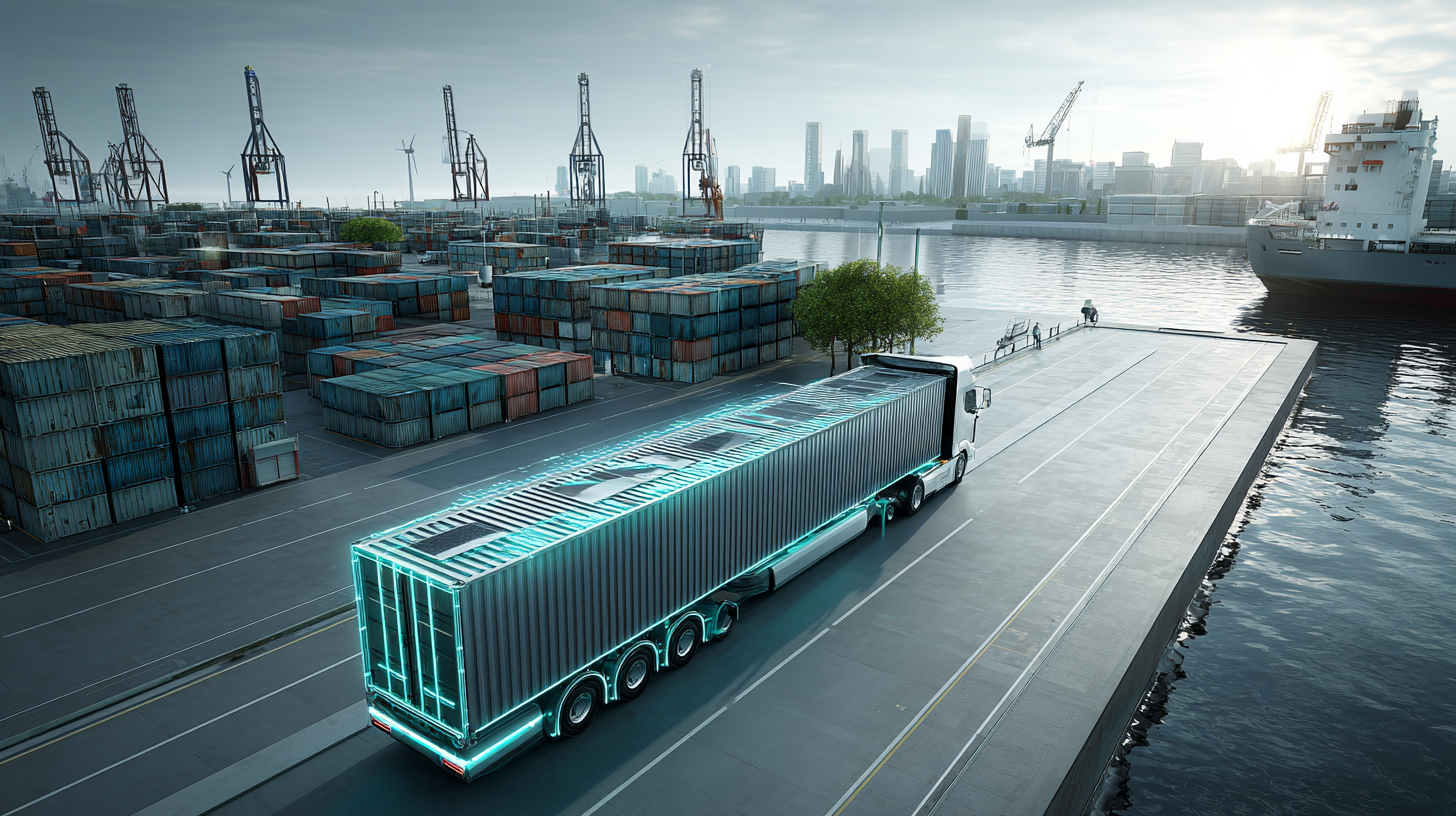
The integration of innovative technology in logistics plays a pivotal role in enhancing sustainability across the supply chain. Advanced technologies such as the Internet of Things (IoT), artificial intelligence (AI), and blockchain are revolutionizing traditional logistics operations. IoT enables real-time tracking of goods, which minimizes waste and optimizes routes, reducing carbon emissions. AI algorithms analyze vast amounts of data to predict demand accurately and streamline inventory management, ensuring resources are utilized efficiently.
Moreover, blockchain technology enhances transparency and accountability in logistics, allowing for more sustainable practices. By providing a decentralized ledger of transactions, all stakeholders can trace the origin and journey of products, ensuring ethical sourcing and reducing fraud. This increased visibility fosters a collaborative approach towards sustainability, where companies can share best practices and work together to minimize their environmental impact. The fusion of these innovative technologies not only enhances operational efficiency but also aligns logistics with broader sustainability goals, paving the way for a greener future.
This chart illustrates the impact of various innovative logistics solutions on sustainability in percentage terms. Electric vehicles and supply chain transparency emerge as key contributors to enhancing sustainability in the logistics sector.
In today's rapidly evolving logistics landscape, the integration of big data analytics is transforming supply chain management into a more efficient and sustainable practice. According to a report by McKinsey, companies that leverage big data effectively can achieve up to a 20% reduction in operational costs. By harnessing vast amounts of data from various sources, businesses gain valuable insights that enhance decision-making and optimize their supply chain processes. This capability not only leads to cost savings but also contributes to significantly lower carbon footprints through better resource management.
Tips: To maximize the benefits of big data analytics, companies should invest in the right tools and technologies that enable real-time data processing and visualization. Training staff to interpret and act on analytics findings is equally vital. Furthermore, implementing predictive analytics can help anticipate market trends and streamline inventory management, further driving sustainability in logistics.
Moreover, a study by Deloitte found that nearly 70% of companies reported improved operational efficiency after implementing big data solutions. Embracing these innovative technologies ensures that supply chains become more resilient and adaptive, addressing the dual challenges of customer demand and environmental responsibility. Adopting data-driven strategies is essential for organizations looking to thrive in a competitive marketplace while promoting sustainability.
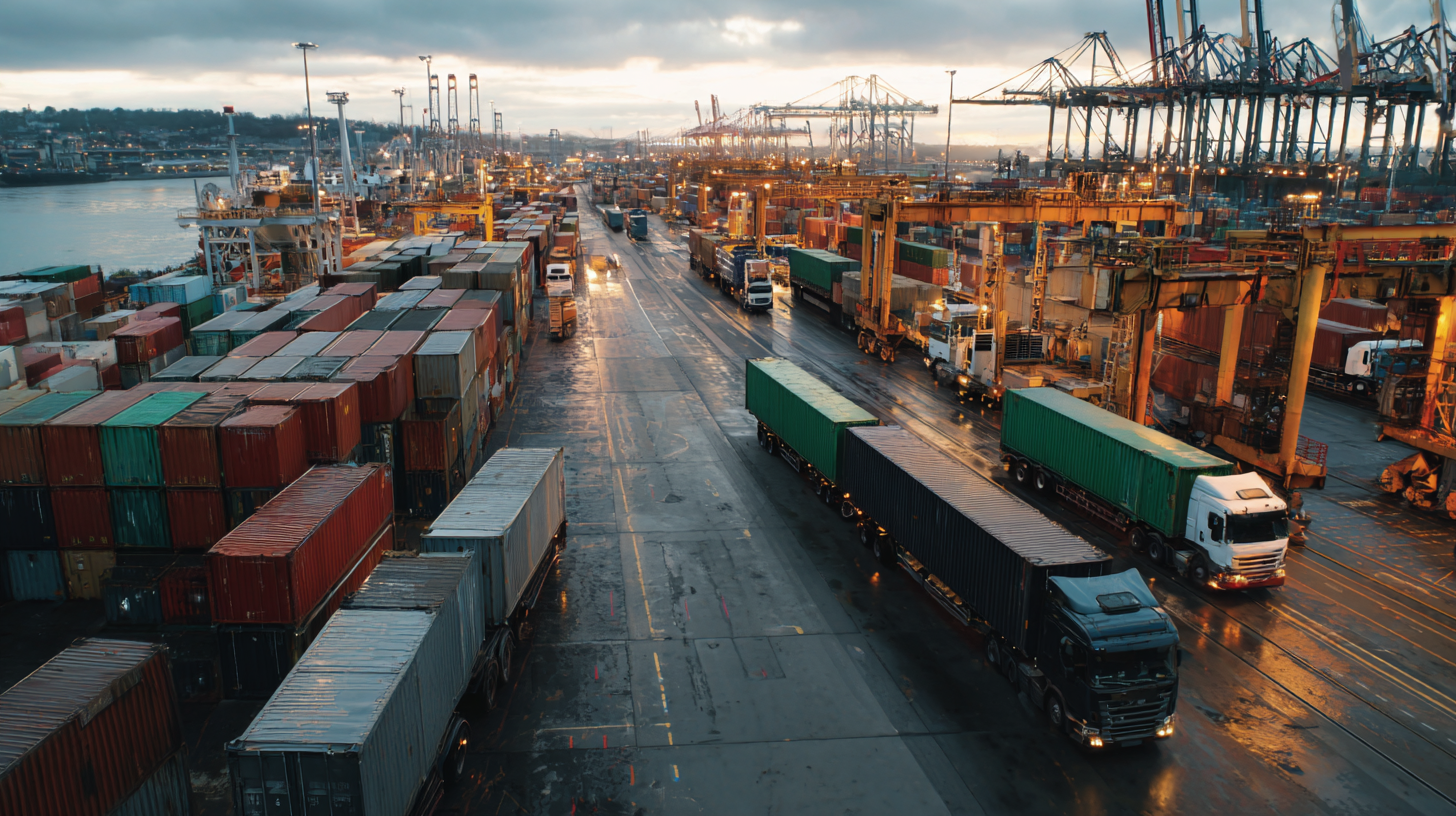
 The transition to green transportation solutions is crucial for reducing the carbon footprint in logistics. Implementing electric vehicles (EVs) and alternative fuels not only lowers emissions but also enhances efficiency in supply chain operations. With technological advancements, logistics companies can now invest in EV fleets powered by renewable energy sources. This shift not only contributes to environmental sustainability but also positions businesses as leaders in the market, appealing to eco-conscious consumers.
The transition to green transportation solutions is crucial for reducing the carbon footprint in logistics. Implementing electric vehicles (EVs) and alternative fuels not only lowers emissions but also enhances efficiency in supply chain operations. With technological advancements, logistics companies can now invest in EV fleets powered by renewable energy sources. This shift not only contributes to environmental sustainability but also positions businesses as leaders in the market, appealing to eco-conscious consumers.
Additionally, integrating smart logistics technologies plays a vital role in optimizing transportation routes and reducing fuel consumption. Utilizing data analytics and real-time tracking allows companies to streamline their operations and minimize wasted resources. By adopting these innovative solutions, logistics providers can significantly cut down greenhouse gas emissions while improving service delivery. Embracing sustainability in transportation is not merely an ethical choice; it is a strategic imperative that strengthens brand reputation and fosters long-term growth in a competitive landscape.
As businesses face increasing pressure to prioritize sustainability, automation has emerged as a critical ally in transforming logistics operations. By leveraging innovative technologies like AI and robotics, companies can enhance efficiencies, reduce waste, and streamline supply chain processes. For instance, automated systems provide real-time data analytics, enabling businesses to make informed decisions that align with their sustainability goals.
Tips: Embrace automation not only to cut costs but also to enhance your environmental footprint. Start by identifying repetitive tasks in your supply chain that can be automated to free up resources for more sustainable practices.
Moreover, automation plays a vital role in modernizing warehouses and enhancing forecasting accuracy. Improved accuracy allows for better inventory management, which reduces overproduction and waste. Companies that have adopted automation solutions report significant improvements in operational efficiency and adherence to sustainability standards.
Tips: Invest in training your workforce on new automated systems to ensure a smooth transition and maximize the benefits of technology. It is equally important to foster a culture of sustainability within your organization to fully realize the potential of these innovative solutions.
Circular economy practices in logistics are increasingly being recognized as a vital component for reducing waste and promoting sustainability. By implementing reverse logistics and innovative aftermarket services, companies can extend the life cycle of products and materials, thereby minimizing waste. According to recent studies, adopting circular supply chain models can reduce waste in logistics by up to 80%, enhancing resource efficiency and lowering greenhouse gas emissions significantly. This transformation is not only beneficial for the environment but also opens up numerous opportunities for job creation, particularly in developing regions where waste management systems are being revamped.
In South Asia, for example, initiatives aimed at reducing food loss and waste within the food value chain are estimated to unlock thousands of job opportunities, fostering local economies while enhancing resilience against climate change. Similarly, in Africa, digitally enabled business models are redefining the plastic economy, moving toward a more sustainable future. Innovative logistics solutions like Kenya's cool corridor initiative are playing a crucial role in boosting agri-exports, demonstrating that collaboration and technological advancements in logistics can drive substantial improvements in operational efficiency and sustainability across borders.
